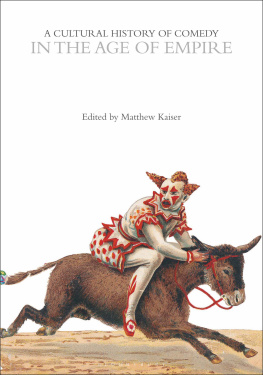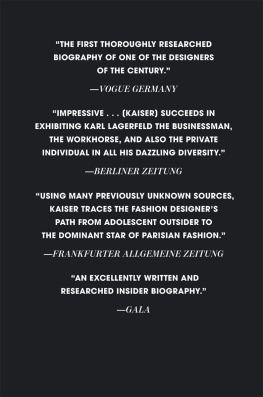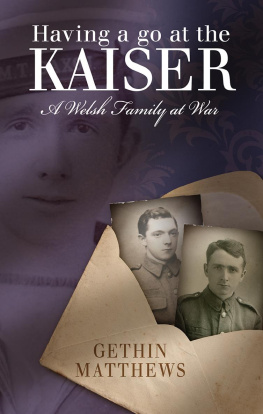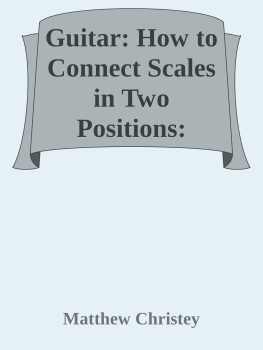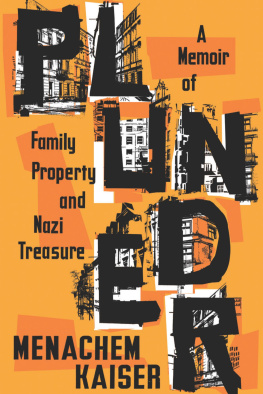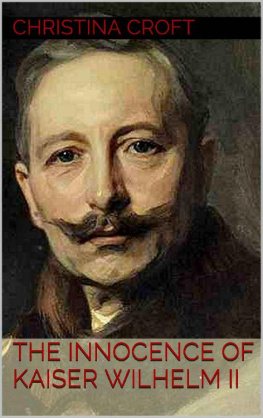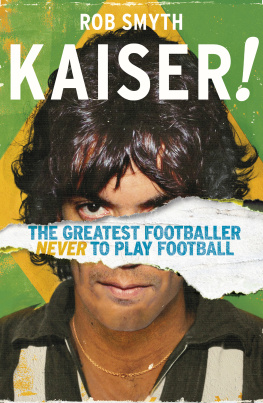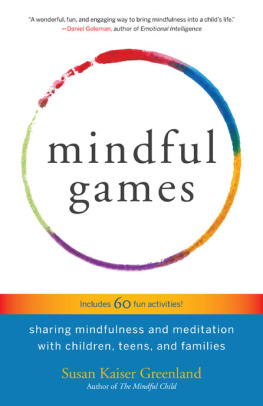Matthew Kaiser - The World in Play
Here you can read online Matthew Kaiser - The World in Play full text of the book (entire story) in english for free. Download pdf and epub, get meaning, cover and reviews about this ebook. year: 2012, publisher: Stanford University Press, genre: Romance novel. Description of the work, (preface) as well as reviews are available. Best literature library LitArk.com created for fans of good reading and offers a wide selection of genres:
Romance novel
Science fiction
Adventure
Detective
Science
History
Home and family
Prose
Art
Politics
Computer
Non-fiction
Religion
Business
Children
Humor
Choose a favorite category and find really read worthwhile books. Enjoy immersion in the world of imagination, feel the emotions of the characters or learn something new for yourself, make an fascinating discovery.
- Book:The World in Play
- Author:
- Publisher:Stanford University Press
- Genre:
- Year:2012
- Rating:3 / 5
- Favourites:Add to favourites
- Your mark:
- 60
- 1
- 2
- 3
- 4
- 5
The World in Play: summary, description and annotation
We offer to read an annotation, description, summary or preface (depends on what the author of the book "The World in Play" wrote himself). If you haven't found the necessary information about the book — write in the comments, we will try to find it.
The World in Play — read online for free the complete book (whole text) full work
Below is the text of the book, divided by pages. System saving the place of the last page read, allows you to conveniently read the book "The World in Play" online for free, without having to search again every time where you left off. Put a bookmark, and you can go to the page where you finished reading at any time.
Font size:
Interval:
Bookmark:
Stanford University Press
Stanford, California
2012 by the Board of Trustees of the Leland Stanford Junior University. All rights reserved.
This book has been published with the assistance of the Faculty of Arts and Sciences at Harvard University.
No part of this book may be reproduced or transmitted in any form or by any means, electronic or mechanical, including photocopying and recording, or in any information storage or retrieval system without the prior written permission of Stanford University Press.
Printed in the United States of America on acid-free, archival-quality paper
Library of Congress Cataloging-in-Publication Data
Kaiser, Matthew, author.
The world in play : portraits of a Victorian concept / Matthew Kaiser.
pages cm
Includes bibliographical references and index.
ISBN 978-0-8047-7608-0 (cloth : alk. paper)
1. English literature19th centuryHistory and criticism. 2. Play in literature. I. Title.
PR468.P55K35 2012
820.93579dc22
2011005797
E-book ISBN: 978-0-8047-7894-7
Portraits of a Victorian Concept
Matthew Kaiser
STANFORD UNIVERSITY PRESS
STANFORD, CALIFORNIA
THE WORLD IN PLAY
For Ken Urban
This book elbowed its way into the world several years ago in Victoria, British Columbia, where I was presenting a chapter from another project, a book on the neurobiology of historical consciousness in Victorian literature. As luck would have it, Herbert Chip Tucker, one of the most brilliant, stylish, and generous writers I know, was in the audience, and on learning that play was one of my research interests, he graciously invited me to contribute an essay to a special issue, devoted to play, of New Literary History. Chip turned out to be one tough editor, mercilessly pushing and prodding my original paradigm (timid creature that it was!) and encouraging me to go back to the drawing board, to question everything I knew about play that I might discover it anew. Thanks to Herbert Tucker, I discovered a world in play. What began as a short article insisted on becoming a book, and at every stage it has benefited from Chips wisdom and rigor.
I am also indebted to George Levine, one of the great Victorianists of his generation. Luckily for me, he was one of the first readers of this book. His encouragement, advice, and faith in this project have meant the world to me. I thank Carolyn Williams too for her friendship, support, and mentorship over the years. She will always be part of my internal audience (the best sentences in this book were written for her). My big-hearted, no-nonsense editor, Emily-Jane Cohen, piloted this vessel expertly into port. I am in awe of her editorial skills and delighted that Emily Bront is her namesake. I offer heartfelt thanks to my agent, David Patterson, to Tim Roberts at Stanford University Press, to Annette Fern at the Houghton Library at Harvard University, to Georgianna Ziegler at the Folger Shakespeare Library, to Gayle Barkley and Donna Stromberg at the Huntington Library, and to Harvard deans Diana Sorensen and Heather Lantz for funding this project. Portions of the Introduction and Chapter One are Copyright 2009 New Literary History, The University of Virginia. They first appeared as an article in New Literary History, volume 40, no. 1 (2009): 10529. I thank managing editor Mollie Washburne, the University of Virginia, and Johns Hopkins University Press for permission to reprint them here. For their support and advice, I am indebted to my colleagues at Harvard University, in particular Daniel Donoghue, James Engell, Marge Garber, Elaine Scarry, and James Simpson.
The following individuals also contributed to The World in Play. Some provided me with public venues in which to test my ideas; others read early drafts and offered helpful suggestions; others opened doors for me, inspired me, or extended a hand in friendship. Still others challenged me, roughed up my ideas, asked incisive questions to which I had no immediate answer. Months later, their words still in my head, an answer would suddenly come to me, and a new dimension to my book would emerge. I also thank Tanya Agathocleous, Stephen Arata, Derek Attridge, Homi Bhabha, Lawrence Buell, James Buzard, Ed Cohen, Leo Damrosch, Carol DellAmico, Christine DeVine, Richard Dury, Stephen Greenblatt, Molly Clark Hillard, Anne Janowitz, John Jordan, Gerhard Joseph, Sally Ledger, Teresa Mangum, Ankhi Mukherjee, Elisa New, Leah Price, Catherine Robson, Werner Sollors, Richard Stein, Maria Tatar, Robyn Warhol, and Roderick Watson. I am lucky to have been accompanied on this journey by Susan Hoffman, Robert Fiddaman, and Sybil Kaiser. To Ken Urban, playwright and musician, I dedicate The World in Play with love and gratitude. For the past fifteen years he has used his tremendous theatrical talent to feign interest in all things Victorian.
A MODERN SENSATION
They cry fie now upon men engaged in play; but I should like to know how much more honourable their modes of livelihood are than ours. The broker of the Exchange who bulls and bears, and buys and sells, and dabbles with lying loans, and trades on state secrets, what is he but a gamester? The merchant who deals in teas and tallow, is he any better? His bales of dirty indigo are his dice, his cards come up every year instead of every ten minutes, and the sea is his green table.
William Makepeace Thackeray, Barry Lyndon
What did modernity feel like to the Victorians? What trusted metaphors did they employ to describe the sensation of modern life? Some felt modernity in their guts: the jolt of a railroad carriage, the lurching landscape, the rattling window. Modernity filled the ears of others: a deafening doubt roused by the ocean, its endless surface, its mockery of heaven. For some, modernity meant an exhilarating leap into darkness, or a mechanized march into light, or the tread of ghost feet beside ones bed. This book explores one modern sensation in particular: a trope invoked frequently by the Victorians to describe a world unhinged from a past. Despite its ubiquity in Victorian literary and cultural texts, despite its centrality to nineteenth-century British self-understanding, few critics today pay it much heed. At first glance, it seems a slight creature, incapable of bearing the cultural and political weight it did.
The modern sensation is play, specifically the bewildering experience of a world in play. A world in play is not the same thing, of course, as a world at play, which is how the Victorians depicted that apocryphal age known as Merry Old England, a time when the omnipresence of play was still satisfying, its expression enchanting. A world in play means two things. First, it means a world in flux: an inconstant and unsettled condition, a queasy state, as Marx and Engels describe it, in which all that is solid melts into air.itself headlong into play, inside it, where it constructs a parallel universe, a ludic microcosm of itself, which eventually displaces that world. The membranes of play, its elastic fibers, stretch to the point where they encircle all of existence. Modern life is subjected simultaneously to a miniaturizing, reductive pressure and to an increasingly erratic, oscillating motion. Recall for a moment Alices Adventures in Wonderland (1865), in which Victorian England, in the shape of a little girl, leaps into a microcosm of itself, a world of toylike objects and childish creatures, a world riven with epistemological undecidability and political strife, where a queen with a penchant for beheadings reigns. Lewis Carrolls rabbit hole captures, in whimsical fashion, the precise psychological state that many Victorians associate with modernity: a narrow space without a floor, constricting but unfixed, finite but unending, a world in play.
Next pageFont size:
Interval:
Bookmark:
Similar books «The World in Play»
Look at similar books to The World in Play. We have selected literature similar in name and meaning in the hope of providing readers with more options to find new, interesting, not yet read works.
Discussion, reviews of the book The World in Play and just readers' own opinions. Leave your comments, write what you think about the work, its meaning or the main characters. Specify what exactly you liked and what you didn't like, and why you think so.


